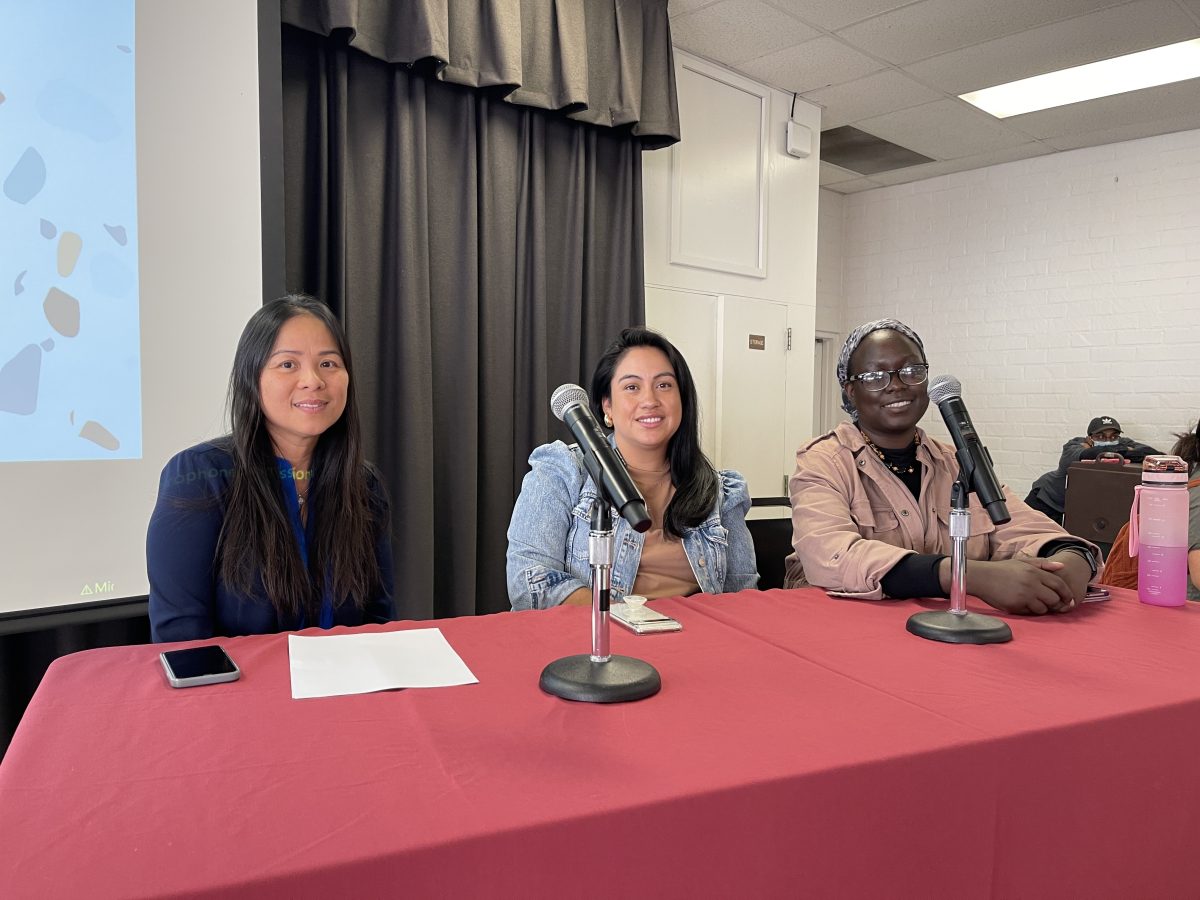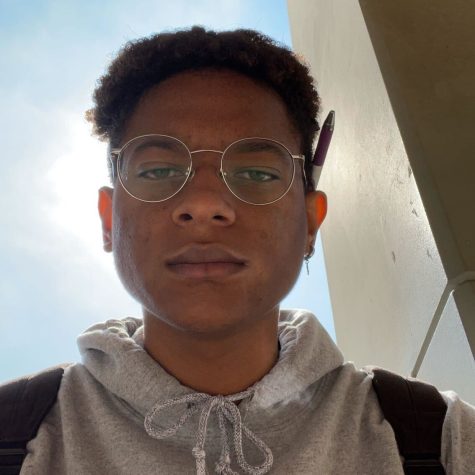Mt. SAC Equity Center and STEM Center hosted “Women of Color in STEM” to celebrate and appreciate women of color in the STEM professions on Nov. 2.
The panel had a goal of discussing the need for women of color in STEM as well as highlighting their experiences as a woman and POC.
Diverse backgrounds, music and conversation quickly filled the auditorium to capacity.
Bao-Chi Nguyen, Cathy Samayoa and Elizabeth Ondula were invited to the panel event to speak to Mt. SAC students.
These women are examples of women of color who persisted through societal standards and dedicated themselves to becoming professionals in their field today. Each of the panelists has also completed or are completing their Ph. D.
The music quieted down and everyone focused their attention on the stage.
Three students currently majoring in various STEM paths at Mt. SAC like marine biology, general biology and medicine, each introduced themselves and a panelist.
The panel’s first introduction was Bao-Chi Ngyuen, a professor of mathematics at Mt. SAC who has taught full-time for 13 years. She immigrated from Vietnam to the United States without knowing English when she was 17 years old and is now an alumni of Pasadena City College and UCLA. She completed her Ph. D. in applied mathematics from MIT and conducted research at UCI.
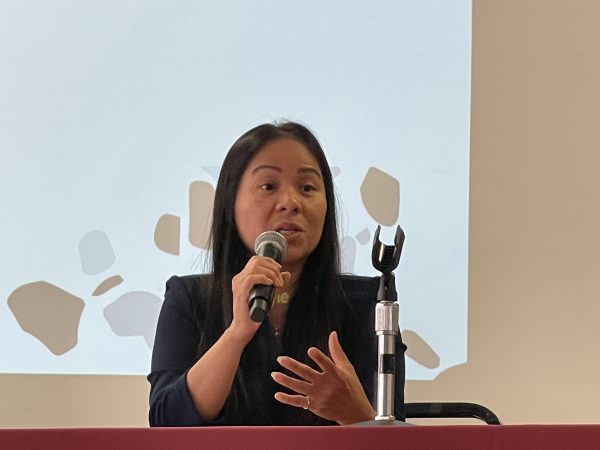
However, it was during her research that she found that her true passion was teaching, informing and influencing all women to succeed in STEM, especially women of color.
“I love seeing that lightbulb moment in my students and that’s why I decided to teach at a community college,” Ngyuen said.
Next introduction was Cathy Samayoa, the daughter of Mexican and Guatemalan immigrant parents. She first received her bachelor’s and master’s in cellular and molecular biology at San Francisco State University and then her Ph. D. in cancer biology at the University of Texas by following her passions.
Samayoa was the first in her family to graduate high school and go to college. She loves to hang out with her significant other and five-year-old son.
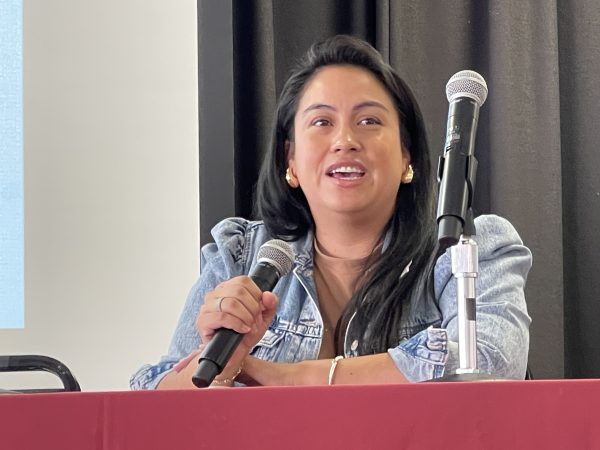
She had her parents, professors, advisors and many others as mentors help her out toward her success and that is an important pillar of her motivation. It is difficult to find a balance between work, personal and social matters but Samayoa is motivated to encourage students as her mentors have.
Last to present was Elizabeth Ondula. Ondula was born and raised in Nairobi, Kenya and is in the U.S. as a student of computer science to gain her Ph. D. at USC. She focused her research on reinforcement learning and its application in guiding informed decision-making under uncertainties. Her passion and love for school subjects drove her path toward STEM mentorship and she enjoys music, spoken word, poetry, fine arts and outdoor activities.
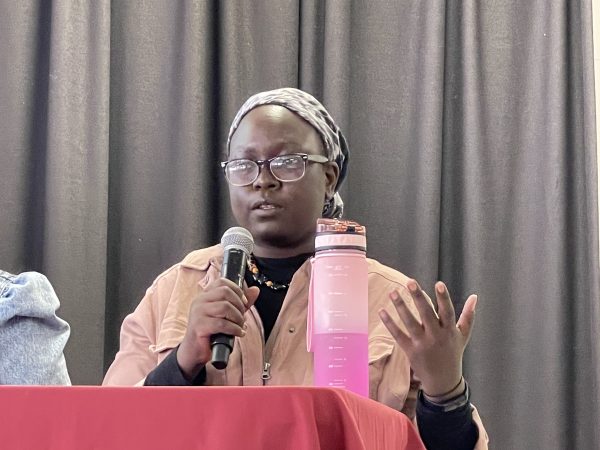
Ondula wanted to pursue robotics when she was in Kenya but found herself in electrical engineering and continued with her curriculum.
“For the longest time I was interested in robotics but unfortunately I wasn’t the best student so I never got to the programs that were close to robotics,” Ondula said. “I used to play a lot with the radio and the TV, I think I’ve broken it.”
Ondula’s voice was softly spoken the entire event but she let out an easy chuckle.
A question for the panel was, “Why do you think the participation of women of color in science is so important?” The common answers that were shared amongst the three panelists were that the upbringing and cultural background of women and POC add a diverse lens toward subjects in STEM that strive off of continued innovation and multivariable perspectives.
“The stereotype is ‘You don’t have what it takes,’” Ngyuen said. ”What I learned is that I want to take whatever negativity they give me and turn it into a positive source of energy to springboard me forward. Take that, internalize the energy and make it happen. Only you could make that happen.”
Samayoa spoke next specifically about what happens when there is not enough diversity or inclusion within science and technology and how that could actually affect medical results.
Pulse oximeters used to measure the oxygen in your blood to assist in identifying COVID or other respiratory problems were inaccurate on darker-pigmented skin and not developed for communities of color.
“Why did no one catch that?” Samayoa said, alluding to the lack of diversity. “Who was at the table developing this device?”
Science, technology, engineering and mathematics are among the biggest priorities represented at all levels of the educational system. Their importance is shown by the hundreds of millions of dollars the U.S. government spends to support what is known as STEM education.
Women have made progress over the last 50 years in the STEM field. According to a 2021 report from the United States Census Bureau, it stated that women have gained more presence in the workforce, from 8% in 1970 to 27% in 2019.
However, women making up barely over a quarter of STEM fields in the USA explains why women are underrepresented in STEM occupations compared to their overall distribution in the U.S. population.
In reference to the same report’s 50-year timeline, 38% of women made up the entire U.S. workforce in 1970 to 48% in 2019.
Representation of women of color is even lower with Hispanic, Asian, and African American women each receiving less than 5% of STEM bachelor’s degrees in the USA.
People of color are also underrepresented in U.S. STEM leadership positions across the industry, academia and the federal workforce.
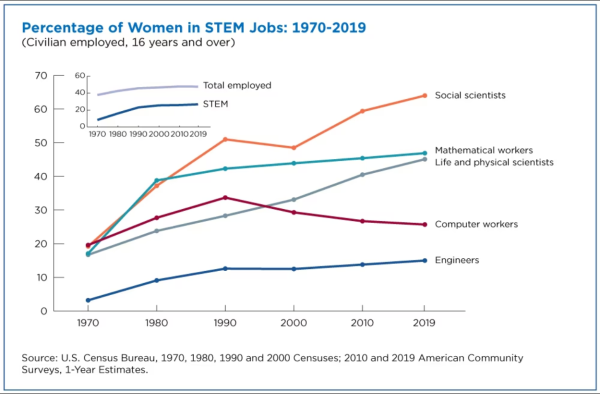
The room broke out into roundtable discussions after the main panel had ended. Students could have a conversation with the panelists, POC faculty and staff or even ask a burning question.
The crowd funneled out the same doors they entered after hearing personable insight from women of color and what it means to find and utilize a community, practice resilience and strive for authenticity.
Samayoa attested how important her mentors were and followed up on that sentiment at the end of the panel.
“Don’t do this by yourself,” Samayoa said. “Coming and having an environment where we were learning together and having fun and struggling together really made me encouraged to keep trying.”
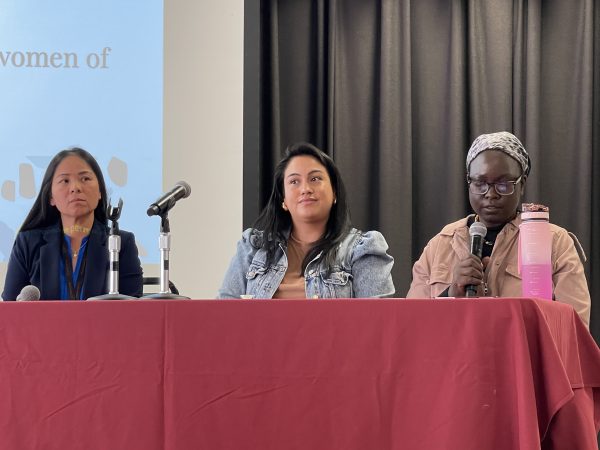
Women of Color in STEM was a free event for anyone to attend from 3 p.m. to 5 p.m. in building 9C-Stage, presented by Mt. SAC Equity Center and STEM Center.
National STEM/STEAM Day is Nov.8, where the day is dedicated to encouraging kids to explore science, technology, engineering, art and math through fun and interactive methods.


